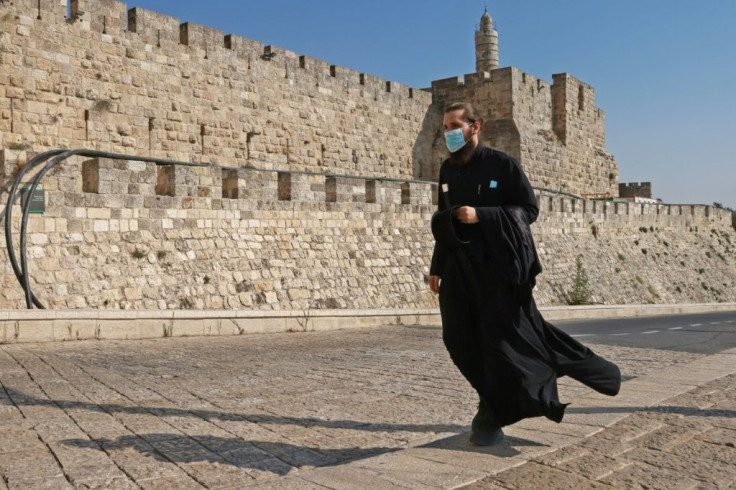Israel Returns To Lockdown As Jewish New Year Begins Amid Rising COVID-19 Cases

As the Jewish New Year began Friday in Israel, the nation was experiencing its second round of lockdowns to curb rising COVID-19 infection rates.
Israelis began celebrating Rosh Hashanah under a three-week lockdown that will span Yom Kippur and Succoth, as well, including measures requiring residents stay within a kilometer (1,100 yards) of their homes, with few exceptions. Schools and shopping centers were closed, and gatherings were limited to no more than 10 people indoors and 20 outdoors.
Israel marks Jewish New Year with second coronavirus lockdown https://t.co/gDndcLWBjv
— BBC News (World) (@BBCWorld) September 18, 2020
The Middle Eastern nation reported 47 coronavirus cases per 100,000 residents, well above the rates in other hard-hit countries. Spain and France, which are considering their own second wave of lockdowns, reported 22 cases and 13 cases per 100,000, respectively, while the U.S. reported 12 cases.
Overall, Israel has seen more than 179,000 confirmed COVID-19 cases and nearly 1,200 deaths. The U.S. death toll is approaching 200,000.
The new lockdown comes at an especially difficult time as Jewish New Year celebrations mean large family meals, rituals and other gatherings that will now require scaling down.
"This is not the kind of holiday we are used to. And we certainly won't be able to celebrate with our extended families," Prime Minister Benjamin Netanyahu said.
The New York Times reported the three-week lockdown was scheduled to coincide with the Jewish New Year because most businesses are slower during the holidays, reducing the economic impact.
Still, the new lockdown could cost Israel an estimated $1.9 billion, the BBC reported.
"We are making every effort to balance health and economic needs," Netanyahu said.
© Copyright IBTimes 2025. All rights reserved.




















